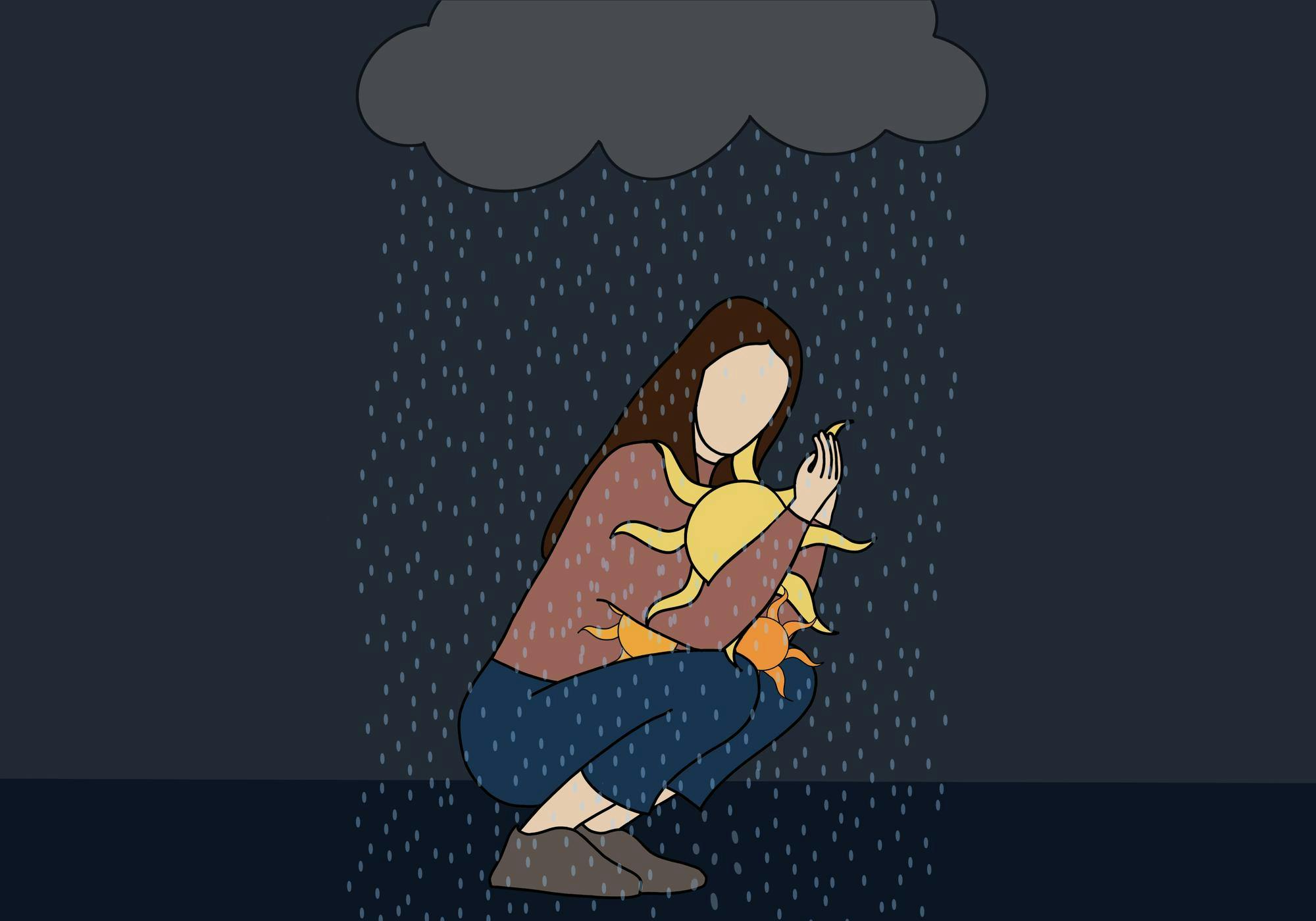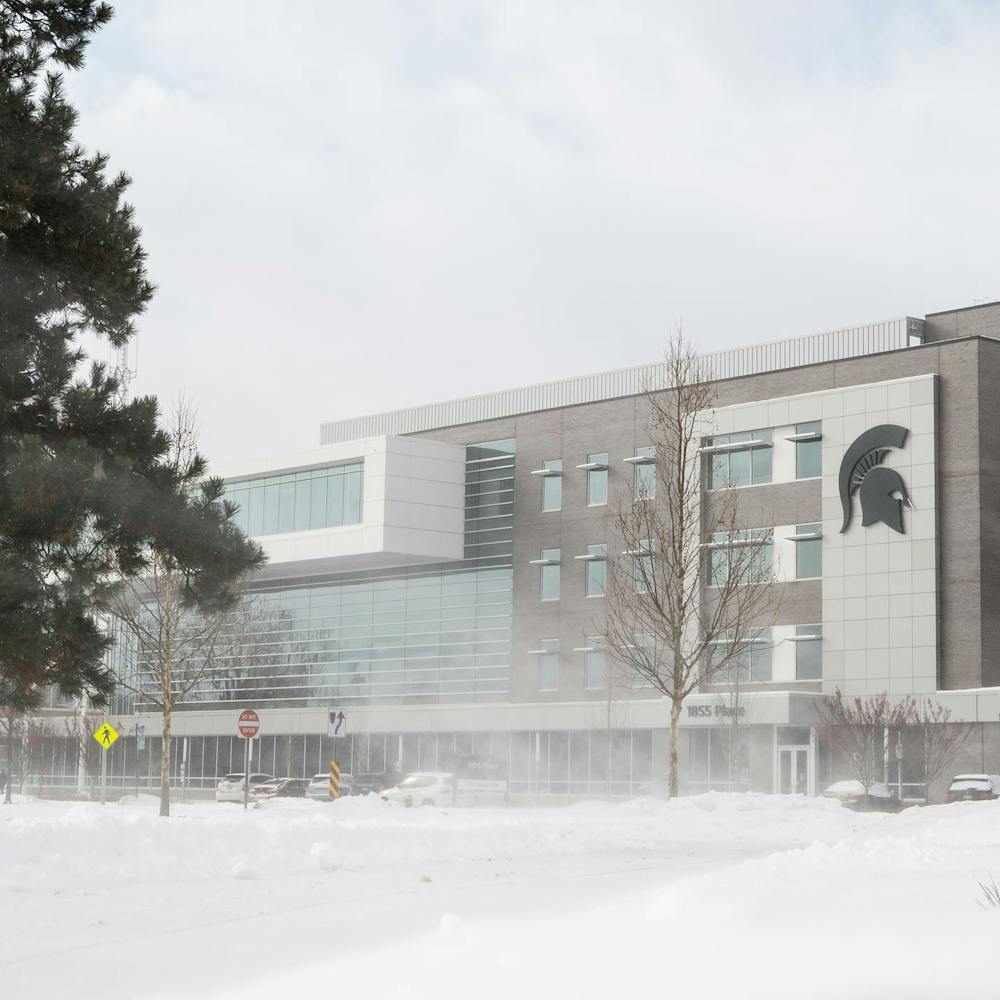Neuroscience professor and researcher Dr. Hanne Hoffman has studied the effects of changes in day length and exposure to light on brain behavior and hormone production. The quality of light that we receive throughout the day can have a really large impact on our mood due to the effect of natural light on our brain’s neurotransmitters.
"When they go to the beach and feel the sun brightly, the majority of people will feel good and part of this is actually your neurotransmitters that are released in the brain, one of them is serotonin," Hoffman said.
In Michigan’s colder months, the quality of light goes down pretty drastically.
"When it's darker outside… the amount of light that is captured by the eye is not enough to promote enough activation of these feeling good centers," Hoffman said. "We're all very different. So the amount of light one person needs versus another to activate the feel good centers are different."
The more light someone needs to release neurotransmitters like serotonin, the more their mood may be affected by the winter months. These people, Hoffman said, are likely to be affected by SAD.
Behavioral neuroscience professor and researcher Dr. Lily Yan also said a leading hypothesis in SAD is the dysregulation of your circadian rhythm. Yan has studied correlations between light and mood.
"Light is a strong factor to keep our internal clock synchronized with the environment, but when we're entering these dark, cloudy days, there is less light available, so our internal clock can drift," she said. "And this misalignment can cause some problems in our sleep, in our moods."
The symptoms of SAD are different for everyone. While some experience clinical depression, others may experience a drop in mood that comes with a loss of interest in everyday activities and relationships, a loss or gain of appetite or lower energy levels.
MSU Counseling and Psychiatric Services (CAPS) clinician and outreach coordinator Lauren Enty said that even if students aren’t experiencing clinical depression, there is often a shift that comes in the winter months.
"Some folks experience that significant change, where it affects multiple components of your life, but I also think that there are some folks that experience the winter slowdown. Like your body is telling you something," Enty said.
Yan recognizes it in her classes every year.
"When I teach in the fall semester, I have seen many students, they started in September, they look so happy, energetic, upbeat," Yan said. "But when entering toward the end of October, November, I can see very clearly, see their moods are changing… it's obvious they're struggling."
It is important to recognize these changes in energy levels and mood, Hoffman said, so you can take the steps to get better.
"If you start to lose interest and have less energy, and it starts to impact your daily activities, then it's time to go see a medical care provider to see what options you have," Hoffman said.
On Michigan State University’s campus, there are many resources through CAPS that students can use to get into contact with a clinician to determine next steps if they are struggling with depression or mood changes during the winter months.
"We do individual therapy, we do group therapy," Enty said. "We also do medication management, if that's something that folks are interested in."
CAPS Connect is one resource that students can look to if they are struggling and need a bit of guidance. It is a short, free consultation with a mental health professional that can make suggestions and talk students through the different resources available to them.
"You can bring a friend if you feel nervous, or you can call... not one thing works for every person, so we love to just have a conversation about what you're looking for," Enty said. "And even if that's not us, we still want to make sure that you get the best care that works for you."
Support student media!
Please consider donating to The State News and help fund the future of journalism.
Making note of the symptoms you feel -- any changes to sleep, appetite, mood, or relationships -- is a great way to be prepared for a meeting with a clinician, so that they can give as much specified help as possible.
"Because throughout the week we are so busy, students are so busy, so by the time you meet with your clinician, a physician, or a nurse, you sit there and you're like, 'oh, I don't even know what's going on,'" Enty said. "So it's most helpful for us to really evaluate how you're eating, sleeping and what areas of your life are most affected."
Outside of therapy and psychiatric treatment, some may find something like light therapy helpful.
"We really need this bright, bright morning light, which boosts our mood and energy, and that's how the light therapy lamps work," Hoffman said. "They kind of mimic the sun. It does not replace the natural sun, but it can really help with seasonal depression."
Hoffman said that light therapy lamps should be used for about 30 minutes in the morning and not used after 3 p.m. It is also important that it isn’t UV light. The best lamps also provide 10,000 lux of light.
Light therapy lights can be expensive, but they are available to students for free on campus at the Olin Health Center. All you have to do beforehand is meet with a CAPS clinician.
"Light therapy, it takes time, you need to change neuronal networks, how they work… I would say people should expect at least 10 days to start to feel an effect of light therapy," Hoffman said. "Real lasting effect takes time."
Yan said that trying to keep a healthy schedule, though hard, is important for combating seasonal changes in mood.
"Try to keep a very regular sleep rhythm. So you try to go to bed at the same time, wake up, get up at the same time," Yan said. "And try to exercise regularly, have a healthy diet and socialize with friends."
Yan also recognizes, however, that telling someone to maintain these habits is a lot easier than actually doing it, especially for those experiencing depression.
"One of the symptoms in depression is they don't do this help seeking behavior. They can't do it. They don't have the energy to do it," she said.
Her biggest suggestion for students on campus is to take advantage of the community around you, and take care of one another.
"If you see your friend struggling, just ask them to go to the cafeteria with you. Ask them to go to class with you. Ask them to go to the gym, even go shopping," Yan said. "Do something, help them. It's a hard time. Let's help each other.”
Discussion
Share and discuss “Experts discuss seasonal affective disorder, symptoms, possible treatments” on social media.







